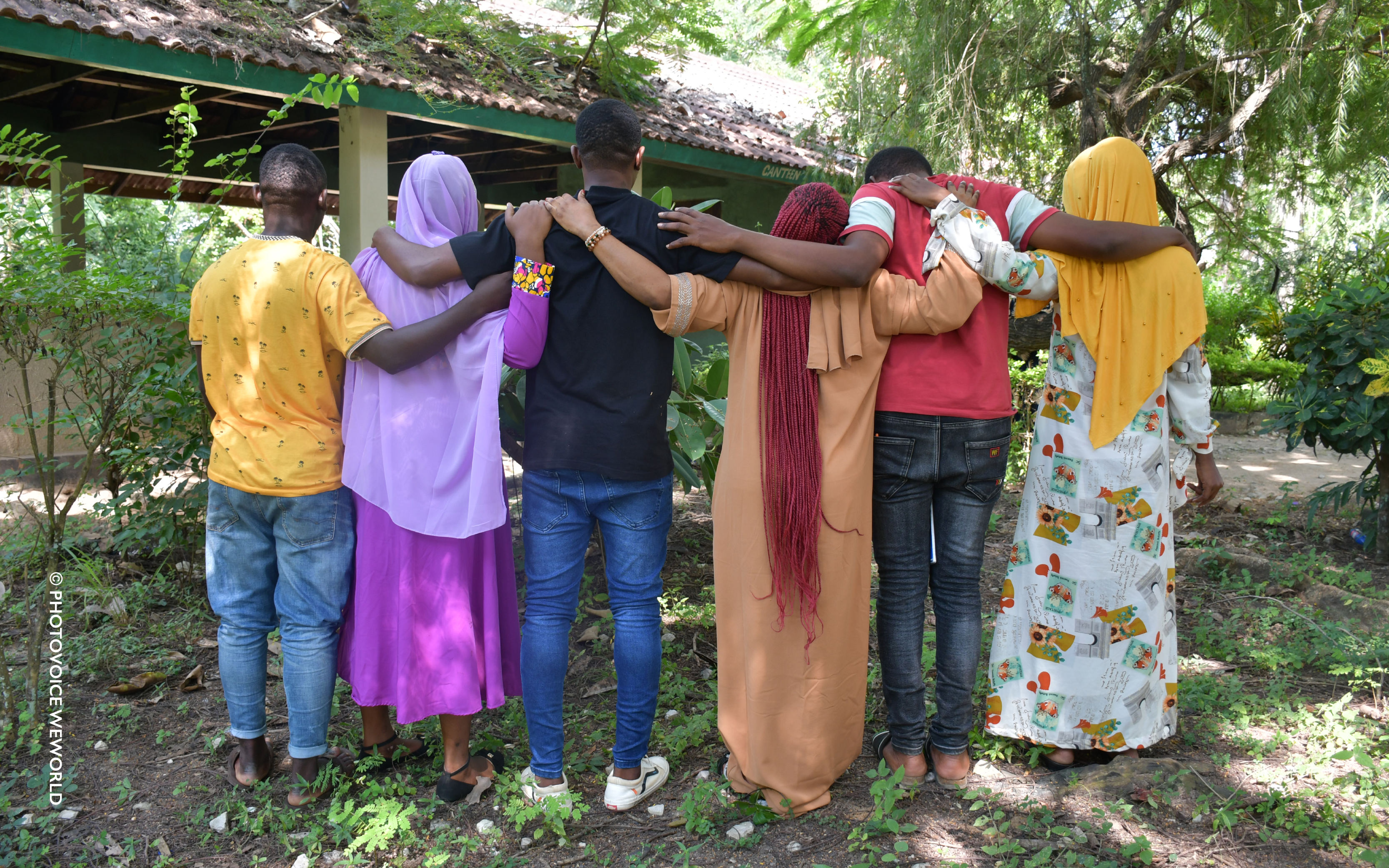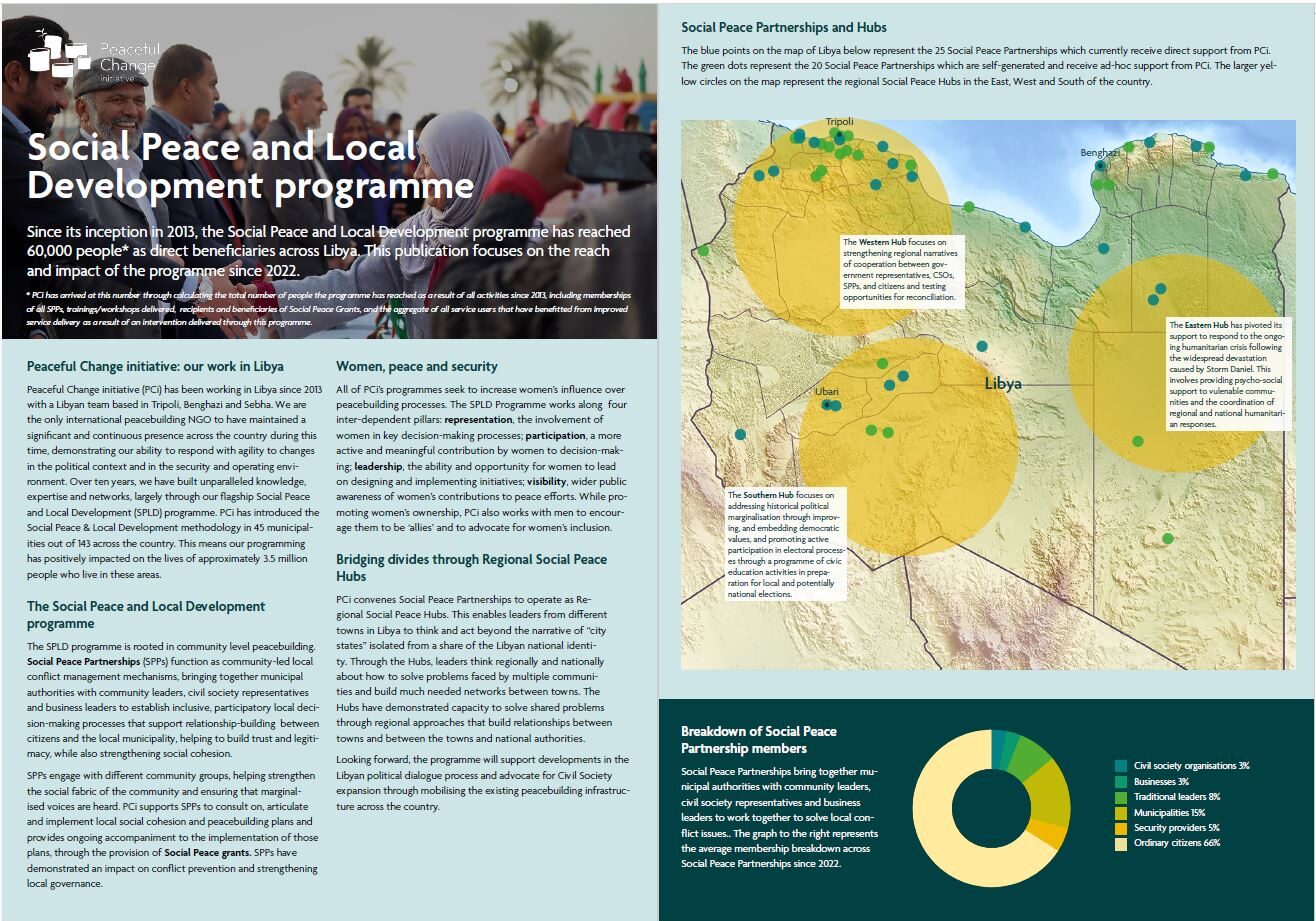Why we support inclusive peacebuilding
For peace to be sustainable, the voices and perspectives of all groups in society must be included in peacebuilding initiatives. Communities in which everyone’s needs, values and interests are considered are less prone to violent conflict.
We work with our partners to support the leadership and participation of women, youth, and other marginalised groups in peacebuilding initiatives. We share learning and provide trainings and tools on how to make peacebuilding more gender sensitive and inclusive of diverse needs and perspectives.
Gender and peacebuilding
Despite the unique contributions they can bring, women continue to face systemic exclusion from taking part in and leading efforts to improve social cohesion, inclusion, and security in their communities. When women’s voices are missing from peacebuilding, their specific needs are often neglected, and we miss out on the perspectives and networks that they can bring to peace efforts.
We work with our partners to address structural and practical barriers, as well as physical risks, that limit women’s meaningful participation in building and sustaining peace.
For example, through our Social Peace and Local Development programme in Libya, we work with Social Peace Partnerships to support women’s inclusion and leadership in peacebuilding and decision-making. This work is making important contributions to shifting views on the importance of the role of women in peace efforts and decision-making. With the support of Social Peace Partnerships, women community leaders have been elected to local councils.
Young people and peacebuilding
Young people have a vital role to play in peacebuilding. Over half of the world’s population is under the age of 30. Many of these young people live in countries affected by violent conflict, and they are often among those most impacted by violence and instability.
We work to promote youth participation and representation in peacebuilding and decision making so that young people can play an active and positive role in their communities and acquire new skills to demonstrate leadership and contribute to sustainable peace.
In Armenia for example, we developed teaching materials on peace and governance for young people in conflict-affected communities. We worked to build an alliance among civil society organisations to advocate for a youth policy that includes questions of peace and security – in line with the international agenda set by UN Security Council Resolution 2250.
A closer look at how we support inclusive peacebuilding
Here are some of the ways we work with our partners to support the meaningful inclusion of women, young people, and other marginalised groups in peacebuilding processes:
Integrating gender into community-level peacebuilding in Libya
Since 2013, a key part of our work in Libya has focused on institutionalising gender inclusion. Working with Social Peace Partnerships, we support women’s inclusion and leadership in peacebuilding and decision-making. This work is making important contributions to shifting views on the importance of the role of women in peace efforts and decision-making. This is reflected by an increased willingness by many male members to be women’s inclusion advocates and allies. With the support of Social Peace Partnerships, women community leaders have been elected to local council.
Progressing young people's participation in Armenia
Young people in Armenia were at the heart of the country’s biggest civic actions and were a driving force in the peaceful revolution that took place in 2018. After the parliamentary elections at the end of that same year, Armenia had one of the youngest parliaments in the world, but no defined youth policy. We worked with the Youth Cooperation Centre of Dilijan to galvanise discussions around the participation of young people in political life, in civic life, and regarding peace and security. The project created a tailored set of materials for Armenia to use to promote activism and participation among Armenian youth. The project also engaged with the national youth agency to promote this at the policy level and united national organisations to be a driving force behind it.
Building peace together on the Swahili Coasts
The Kujenga Amani Pamoja project, which translates as ‘building peace together’, works in the Swahili Coast regions of Kenya, Tanzania, and Mozambique. The project aims to support youth-led networks and organisations to actively practice and disseminate learning on peacebuilding and conflict prevention. It looks particularly at the ways in which young men and women can support peacebuilding and inclusion through cultural practices. The project takes place in a region that experiences high levels of youth unemployment and young people’s political marginalisation, creating grievances that are easily manipulated by violent extremist groups.
Recent resources

Understanding mental health and wellbeing in eastern Libya
This research paper highlights contextual experiences and expressions of mental health and well-being in Eastern Libya with a view to

Young people and peacebuilding in the Swahili Coast
Our latest report explores the intersection between youth, culture and peacebuilding along the Swahili Coast.

Impact report: Social Peace and Local Development programme
This publication showcases the impact and reach of our Social Peace and Local Development programme since 2022. The report highlights
